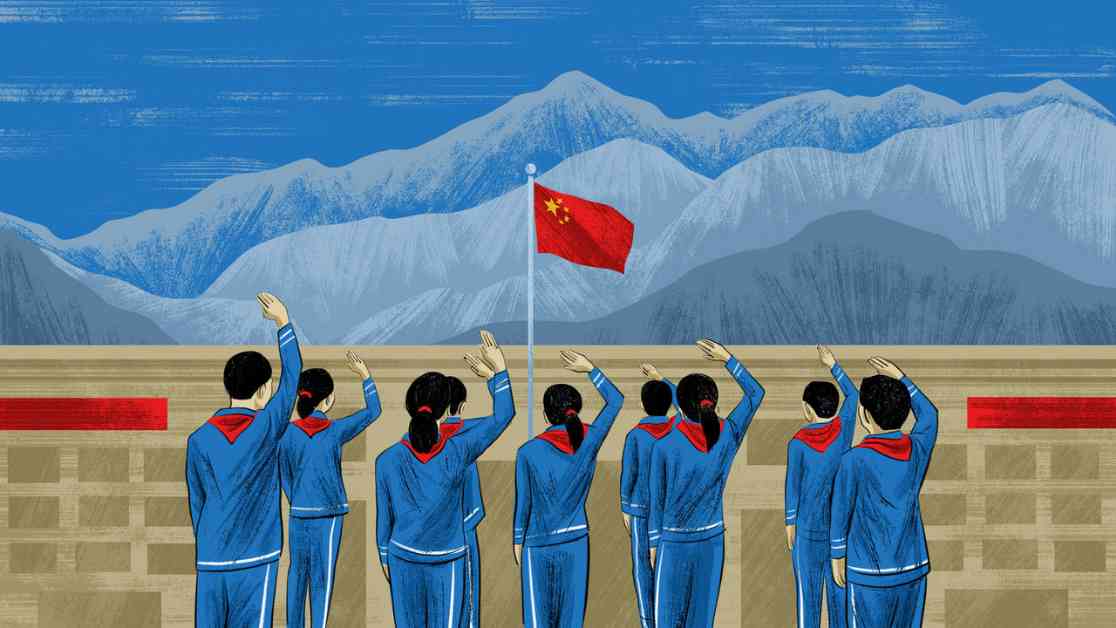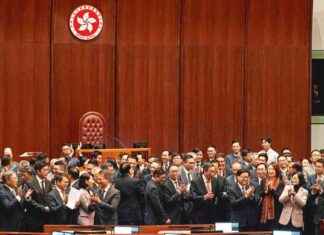In a Tibetan region in China’s western province of Qinghai, lies the serene Rongwo Monastery, surrounded by pilgrims and Tibetan Buddhist monks in their distinctive dark red robes. The atmosphere exudes a sense of calm and devotion as local believers make their way around the monastery’s yellow walls, spinning wooden prayer-wheels as they move along.
However, beneath this tranquil façade lies a troubling reality – the Chinese government’s policy of separating young Tibetans from their families. In this region, children are required to attend Chinese-language boarding schools, where they are systematically distanced from their cultural and religious roots. This practice has raised concerns about the preservation of Tibet’s ancient heritage and traditions.
This issue has sparked debates and discussions, with many questioning the motives behind such a policy. The forced separation of young Tibetans from their families has led to fears of cultural assimilation and the erosion of Tibetan identity. Critics argue that this approach is a deliberate attempt to undermine the unique cultural heritage of Tibet and promote Chinese dominance in the region.
Despite the Chinese government’s efforts to justify this policy as a means of providing education and opportunities for Tibetan youth, the underlying implications cannot be ignored. The importance of preserving cultural diversity and respecting the rights of minority communities must be upheld, even in the face of modernization and development.
As the world continues to witness the impact of China’s policies on Tibet, it is crucial to engage in constructive dialogue and advocacy to safeguard the rights and dignity of the Tibetan people. The international community must stand in solidarity with Tibetans and support their quest for autonomy and cultural preservation.
In the midst of political tensions and cultural challenges, the resilience and spirit of the Tibetan people remain unshaken. Their commitment to preserving their heritage and traditions serves as a powerful reminder of the enduring strength of human identity and cultural diversity.
As we reflect on the situation unfolding in Tibetan regions, let us remember the importance of empathy, understanding, and solidarity. Together, we can work towards creating a world where every culture and community is respected and valued, regardless of differences or disparities. The journey towards cultural harmony and mutual respect begins with a single step – let us take that step together.



























